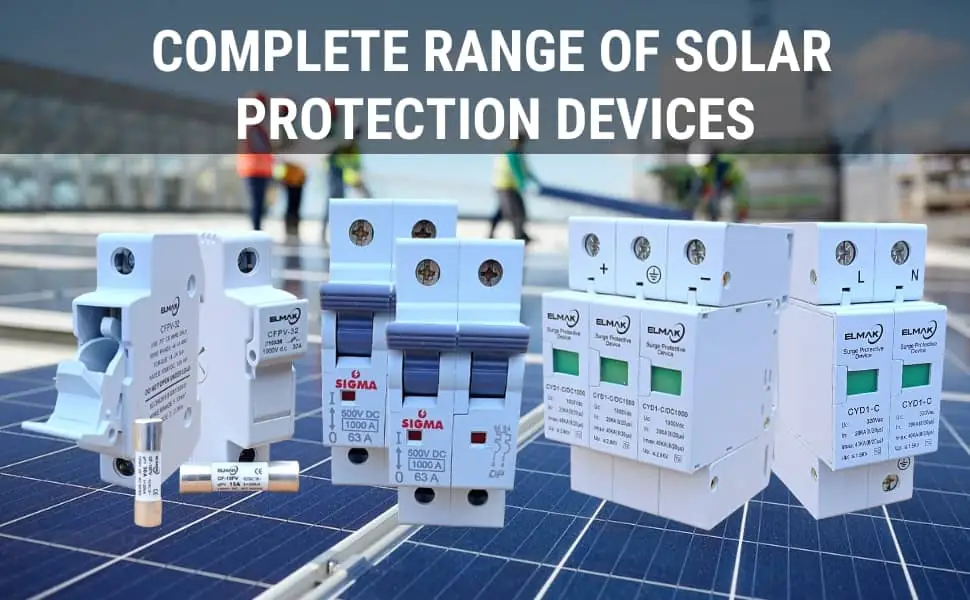Solar Protection Devices & Portable Efficient Solution
Solar Protection Devices: An Overview
Solar protection devices are specialized equipment designed to mitigate electrical risks and protect solar power systems from various hazards. These devices ensure the safe and reliable operation of solar installations, minimizing the potential for damage, system failure, and electrical accidents.

Why Are Solar Protection Devices Important?
Solar protection devices are crucial for several reasons:
- Safety: They enhance the safety of solar power systems by reducing the risk of electrical shocks, fires, and other accidents caused by power surges, lightning strikes, ground faults, and other electrical abnormalities.
- Equipment Protection: Solar protection devices safeguard sensitive equipment, such as solar panels, inverters, and batteries, from damage caused by voltage spikes, overcurrents, and transient events.
- System Longevity: By providing reliable protection against electrical risks, these devices contribute to the longevity and performance of solar power systems, reducing the need for costly repairs and replacements.
- Code Compliance: Many electrical codes and regulations require the installation of specific protection devices in solar systems to ensure compliance with safety standards.
Price List of DC & AC SPD
| SPD Model | Selling Price | Buy It Now |
| 320V 1Ph AC SPD (2 Pole) | Rs. 799 |  |
| 320V 3Ph AC SPD (4 Pole) | Rs. 1,240 |  |
| 600V DC SPD (2 Pole) | Rs. 799 |  |
| 1000V DC SPD (3 Pole) | Rs. 1249 |  |
Types of Solar Protection Devices
There are several types of solar protection devices available, each addressing specific electrical risks. Let's explore some common ones:
Surge Protectors
Surge protectors, also known as surge suppressors or transient voltage surge suppressors (TVSS), safeguard solar systems from voltage spikes caused by lightning strikes, utility grid fluctuations, or switching events. They divert excessive voltage to the ground, protecting connected equipment from damage.
2. Lightning Arrestors
Lightning arrestors are designed to protect solar installations from the damaging effects of lightning strikes. They provide a low-resistance path to ground, allowing lightning currents to bypass the system and safely dissipate into the earth, minimizing the risk of equipment damage and electrical surges.
3. Ground Fault Protection Devices
Ground fault protection devices (GFPDs) monitor the flow of electrical current and detect ground faults, which occur when current flows through unintended paths, such as equipment casings or human bodies. GFPDs quickly interrupt the circuit to prevent electric shocks and mitigate the risk of fires or equipment damage.
4. Rapid Shutdown Devices
Rapid shutdown devices ensure the rapid de-energization of solar systems in emergency situations or when maintenance work is required. These devices reduce the risk of electrical hazards for first responders, maintenance personnel, and occupants by quickly shutting down the power output of solar arrays.
When considering solar protection devices, it is important to choose reputable brands and consult with professionals to ensure the proper selection and installation of the devices that align with your specific system requirements.
Installation Considerations for Solar Protection Devices
Proper installation of solar protection devices is crucial to maximize their effectiveness. Consider the following during installation:
- System Evaluation: Assess the electrical risks and vulnerabilities of your solar system to determine the types and quantities of protection devices required.
- Location: Install protection devices in appropriate locations, such as at the service entrance, combiner boxes, or near sensitive equipment, to ensure effective coverage and optimal protection.
- Compliance: Follow local electrical codes, regulations, and manufacturer guidelines for the installation of protection devices to ensure compliance and system safety.
- Professional Installation: While some protection devices can be installed by knowledgeable individuals, it is recommended to consult with professionals or certified installers for complex installations to ensure proper wiring, grounding, and system integration.
Always prioritize safety and consult with experts to ensure the correct installation of solar protection devices for your solar system.
